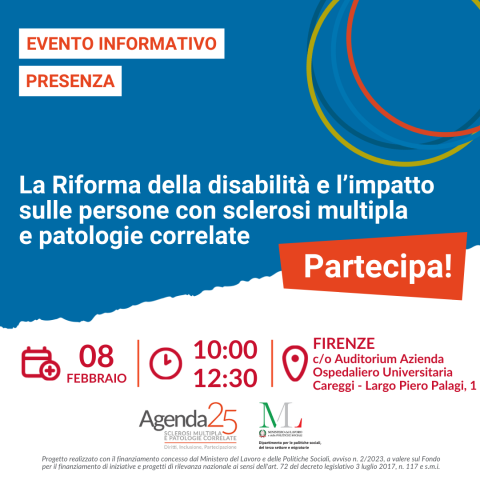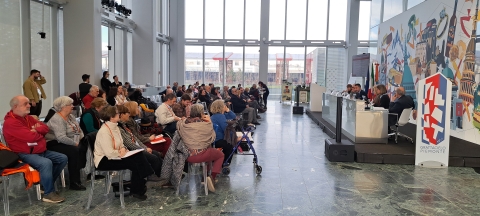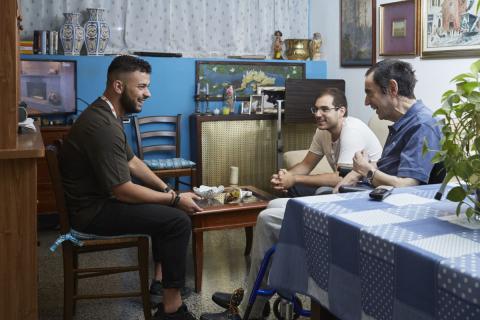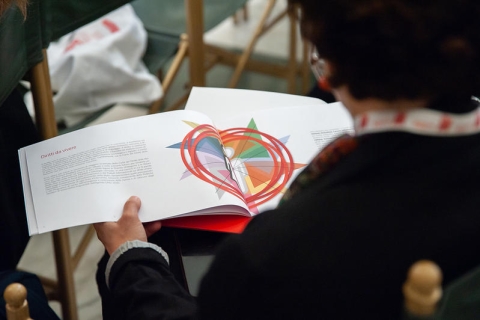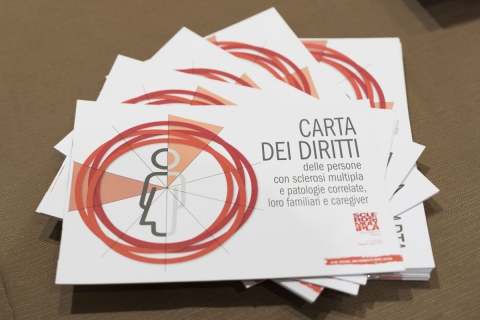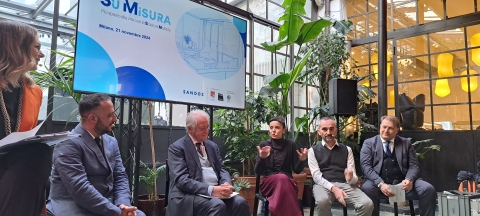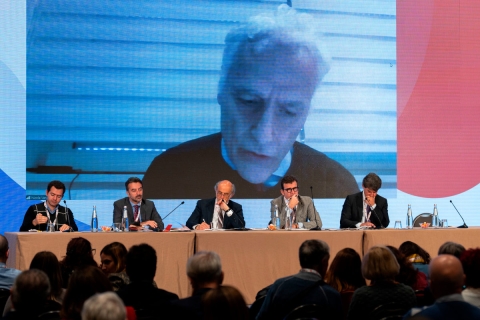The Congress that promotes research and clinical practice in rehabilitation for people with MS. Brings together 300 researchers from all over Europe. Central node is translating research evidence into clinical practice everyday by focusing the rehabilitation treatment on the person with MS.
300 researchers from 13 European countries are meeting in Milan on April 9th, 10th and 11th for the 20 years of RIMS, the European network that aims to connect and promote best practices and the best research in the field of rehabilitation. An event sponsored by RIMS in collaboration with AISM and its Foundation and the Foundation IRCCS Carlo Besta Neurological Institute in Milan.
"Rehabilitation is a research field that each year has become more and more important so as to highlight, for his 20 years, two basic themes: translational research in rehabilitation, and the point of view of the patient for evaluation efficacy of rehabilitation treatments. "
"The exceptional development of drug therapies in MS has had a profound effect on its inflammatory component but not on neurodegenerative aspects. A strategic objective will be to combine drug therapy with rehabilitation, ranging from improvement of health policies to the use of new technologies to change the functional neurological deficit "refers Renato Mantegazza, Director of the Department of Neuroimmunology and Neuromuscular Diseases Foundation Neurological Institute Carlo Besta in Milan.
On the one hand RIMS 2015 presents studies that accrue to the evidence of effectiveness of rehabilitation, stressing the need to translate research evidence into clinical practice every day; on the other hand, it focuses its attention on all the scientific tools that allow to put at the center of research and clinical practice the views of the person, who is able to reportthe effectiveness of rehabilitation treatments.
"For AISM the main way that research, rehabilitation centers, policy makers must follow to be effective in carrying out their respective duties is to make people with MS central " - says Mario Alberto Battaglia, President of the Italian Multiple Sclerosis Foundation.
The availability of rating scales that help you understand and evaluate better both the needs of the person and the effectiveness of the recovery, from the point of view of the person itself, is a focal point of this RIMS 2015: demonstration of therapeutic treatment rehabilitation must go through a multi-center, cooperative approach, with studies carried out on a large scale and on a large number of people.
Alessandra Solari, Director of Neuroepidemiology Foundation Carlo Besta Neurological Institute in Milan and member of the Executive Committee of the RIMS recalls that "The importance of the outcome measures reported by the patient ('PROs') is now recognized: both the European (EMA) and the US (FDA) Regulatory Agencies require that the 'PROs' are an integral part of the necessary documentation to the marketing authorization for the medicines. Moreover, the use of rigorously validated and internationally shared 'PROs' is central to provide evidence on the effectiveness of rehabilitation treatment".
The ultimate goal of RIMS is "networking" through its participants, researchers, clinicians and patient associations promoting cooperation, sharing and development of common tools between countries, allowing to compare data and results in rehabilitation.
As Paola Zaratin, Director of AISM Scientific Area, states: "This moment, built in the last decade, is historic. Scientific research, and in particular the one the Association directs, finances and runs, is increasingly showing that both motor and cognitive rehabilitation treatment has an impact on the disease activity. It 's time to take charge of the evidence that scientific research is getting and to translate them into personalized rehabilitation treatments, to which the person with MS must have access."
In this direction, the Association is involved in RIMS Congress even as speakers of some witnesses: the MS Progressive Alliance, which has, among its five priority areas , validation of rehabilitation treatment on a large scale and the development of mobile health (using daily, personal, domestic smartphones, tablets) in the 'self-management' of their own health. This is an excellent approach that focuses on the person: it will be the same person to be the first actor of his rehabilitation, while the doctor can remotely monitor in real time the effectiveness of the treatment for that individual, and, if necessary to calibrate it according to the response that each person provides.
Another intervention that AISM is promoting within the RIMS Congress is edited by Professor Mario Alberto Battaglia, "by making the point on research in rehabilitation, on the history of previous Congresses of RIMS and on synthesizing how and where the MS Societies are investing around the world with regard to the rehabilitation - explains Battaglia – we will show how and why the rehabilitation has come to get a series of strong evidence of effectiveness. It 's now time to take the last step together and engage in research to bring even the rehabilitation treatment to the dignity of therapeutic treatment, placing it between the Italian ‘Percorsi Diagnostici Terapeutici Assistenziali’ that are being developed in the various regions” .
In short, what we want to show through the RIMS Congress presentations, thanks also to the importance of the tools of self-reports of people with MS, is that rehabilitation is effective in maintaining or improving the ability to self-repair that each person possesses. Together e can translate research in rehabilitation in effective treatments that can enter the daily clinical practice of MS rehabilitation centers.



